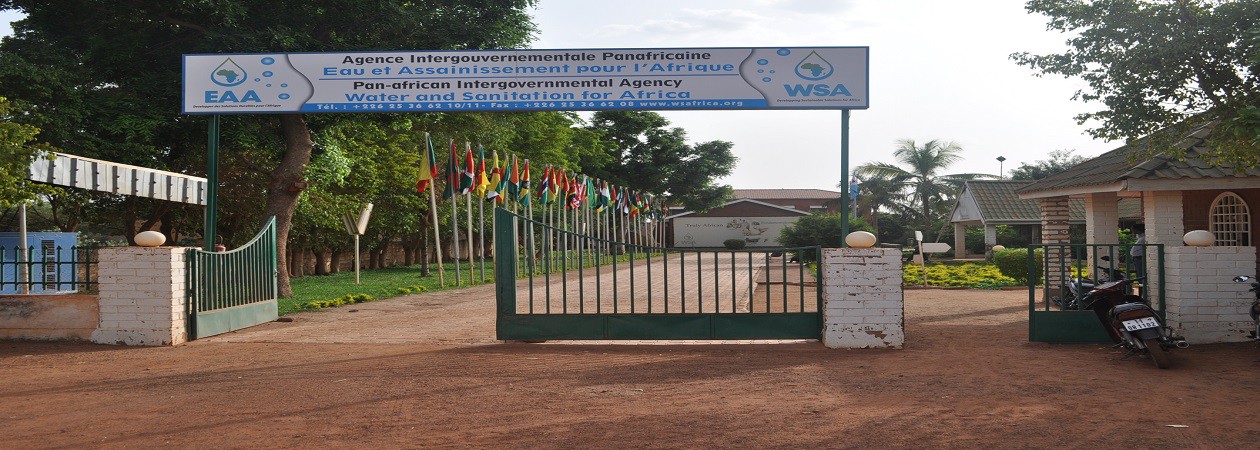The WSA new vision builds on the results of 27 years of experience in research on water and sanitation. The scientific contribution of the institution was through research on socio-cultural, economic and technological aspects.
As regards to sanitation and in accordance with the Bellagio principles relating to sustainable development, WSA led a research program on the ecological approach called EcoSan from 2001 to 2013 with financial and technical support from the Swedish International Development Agency (SIDA). Research was carried out on several axes.
A widely proven research
On the technical level, significant effort for the technological adaptation of the various models was provided with the participation of end beneficiaries namely households. For example, in highly Muslim circles, an outlet for anal cleaning water was designed in addition to squat and urine drainage holes; the cost of the proposed models dropped from 500,000 to 25,000 CFA francs as shown below.


Figure: prototypes
This diversity of technical proposals enables to meet demands of all communities social categories, from wealthier to poorer households, while taking into account both socio-cultural and religious habits.
On the social level, results indicate gradual changes in three stages including:
- an observation and curiosity of people stage,
- an acceptance of the latrine stage; the facility is considered a tool for progress and improvement of hygiene behaviors and sanitation,
- and finally the stage of positive perceptions of the EcoSan concept through the consumption of agricultural products fertilized with sanitized human urine.
These changes of attitude have been achieved through a communication strategy which favored the use of local facilitators and the use of local practices as reference basis for population acceptance of the EcoSan approach.
On agriculture and energy levels, effects of sanitized excreta and urine on production specifications or many local crops (sorghum, maize, cassava, yams, tomato, cauliflower, potato, eggplant, etc.) have been successfully tested. Indeed, yields from bio-fertilizers are generally greater by 20% than those from chemical fertilizers.
The urine-feces combination improves the soil organic matter content while reducing its acidity: organic amendments (which effects are similar to those of organic substrates like manure and compost). This helps maintain the land-based biotic integrity during and after farming. In addition, urine is a very good neutralizing, alkalizing and fertilizing agent in the bio digestion of agro-industrial effluents. Effluents are often bio-recalcitrant due to the excess acidity, deficiency of nitrogen or low alkalinity. A typical example is cassava effluents. These weaknesses will be filled during their bio digestion for methane production in co-substrate with urine.
Furthermore, the use of excreta helps fight against particular weeds such as striga. Other benefits such as organoleptic quality (color and flavor) are reported by farmers and consumers
On sanitation and environmental levels, results of analysis performed at different stages of feces and urine production show that composted faeces are sanitized and present no danger to human health and the environment.
Urine is not contaminated by feces, a sign of the good mastery of users of urine separation techniques. During the faeces sanitization process coliforms and sulphite reducing anaerobes disappear completely after four months. This disappearance occurs earlier in pits closed with sheets. After a six months sanitization time of feaces, all opened pits had larvae and adult forms of cockroaches and nematodes (Rhabdilis sp). Similarly, analysis performed at various stages of farming show that harvested products show no contamination by pathogens germs; and the presence of parasites on crops is rare.
The adoption of the sanitization by storage mode makes the EcoSan approach a biological fight against bilharzia strategy as it helps break the transmission chain.
What can we learn from this?
Multisectoral research led by WSA on the ECOSAN concept in the African context helped establish a strong argument about the approach. The evidence provided and validated by the scientific community has paved the way for a better acceptance of the approach in national policies and strategies.
Once human excreta have acquired a market value, its management can be seen as a profitable business with return on investment. The implementation of a pilot phase of the EcoSan approach on suitable scales will produce the evidence of the economic and financial profitability on one hand and the sociological, health and environmental benefits on the other. These elements will serve as strong arguments to convince authorities take favorable legal and institutional measures for the involvement of the private sector.



